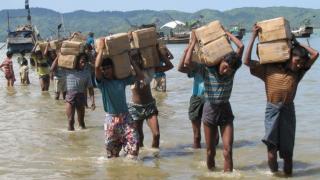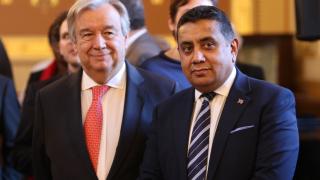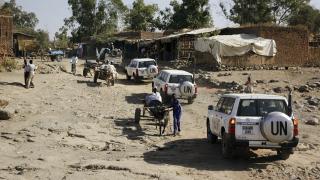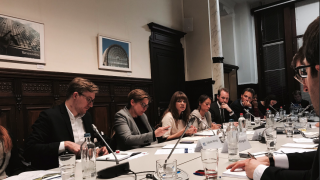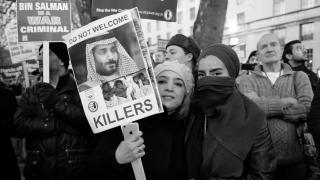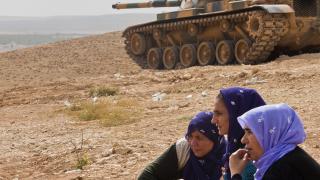
UNA-UK is deeply concerned by the situation unfolding in Northern Syria as a consequence of the Turkish invasion. There is a significant risk that this action will lead to a substantial number of deaths, and further deepen the humanitarian crisis in Syria. We urge all parties to the conflict, and those - such as the UK - with the ability to bring influence to bear upon Turkey, to be mindful of their responsibility to protect populations from genocide, war crimes, ethnic cleansing and crimes against humanity.
The UK must immediately suspend all arms sales to Turkey, as it has already done in the case of new licences, following the announcement of similar measures by France, Finland, Norway and The Netherlands. This is a requirement placed on the UK by its ratification of the Arms Trade Treaty, which prohibits the authorisation of exports where there is "an overriding risk" that they "could be used to commit or facilitate a serious violation of international humanitarian law".
The UK must also bring diplomatic pressure to bear on Turkey. The fact that Russia and the United States colluded to water down the statement the UN Security Council made with regard to the invasion was disappointing, but not surprising (informal cooperation of this form between the US and Russia is surprisingly common). The UK helped redress the balance by signing on to a stronger joint statement by the European Union, but the UK should use all the diplomatic tools at its disposal, including its membership of NATO, to pressure Turkey into living up to its international obligations.
While the action of the Turkish government in threatening to uproot its 3.6 million resident refugees in response to robust EU action is unconscionable, we note that this is a vulnerability created by the UK and EU's policies with respect to the management of refugees from the region. Had the EU, and in particular the UK, been more willing to rehome a more equitable share of Syria's displaced it would have lessened the burden on neighbouring nations, and limited the extent to which they could be used to exert pressure.
As we explored in the Spring 2017 issue of our magazine (guest edited by Lakhdar Brahimi), the conflict in Syria is complicated; combatants do not fit neatly into categories and there are shades of grey and overlap between many of the groups. This situation has now been further complicated as erstwhile allies turn on or abandon each other.
Nevertheless, several of the observations we made in 2017 remain salient: firstly that this war would never have lasted for this long, nor maintained its high level of brutaility, if it hadn't been for the flow of materiel and diplomatic support from external actors. Further, a serious policy of conflict prevention, without political preconditions and featuring all parties to the conflict, would have served the interests of Syrian civilans better than the absolutist positions sides have thus far taken. And finally, while negotiations in parellel to, or alongside, UN processes can perform a useful role, a lasting and sustainable peace in Syria is likely to only be possible if negotiated under UN auspices, and involving significant compromises on all sides.
Photo: Turkey–Syrian border (October 2014). Residents of Kobani watch the battle as a Turkish tank rolls by. Credit: Jacob Simkin/NurPhoto/Alamy


